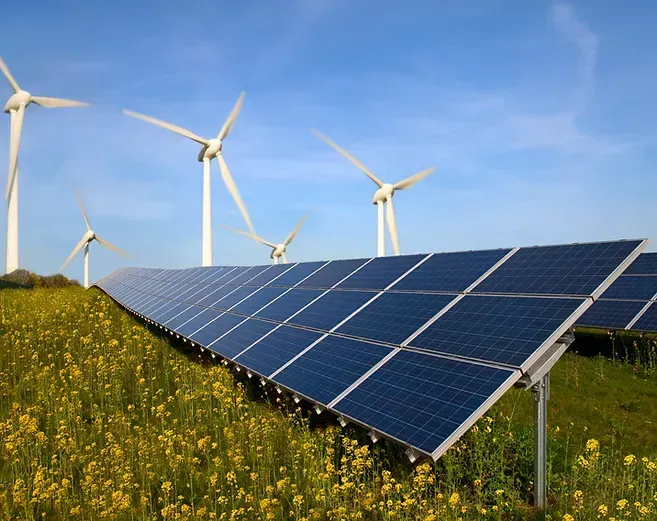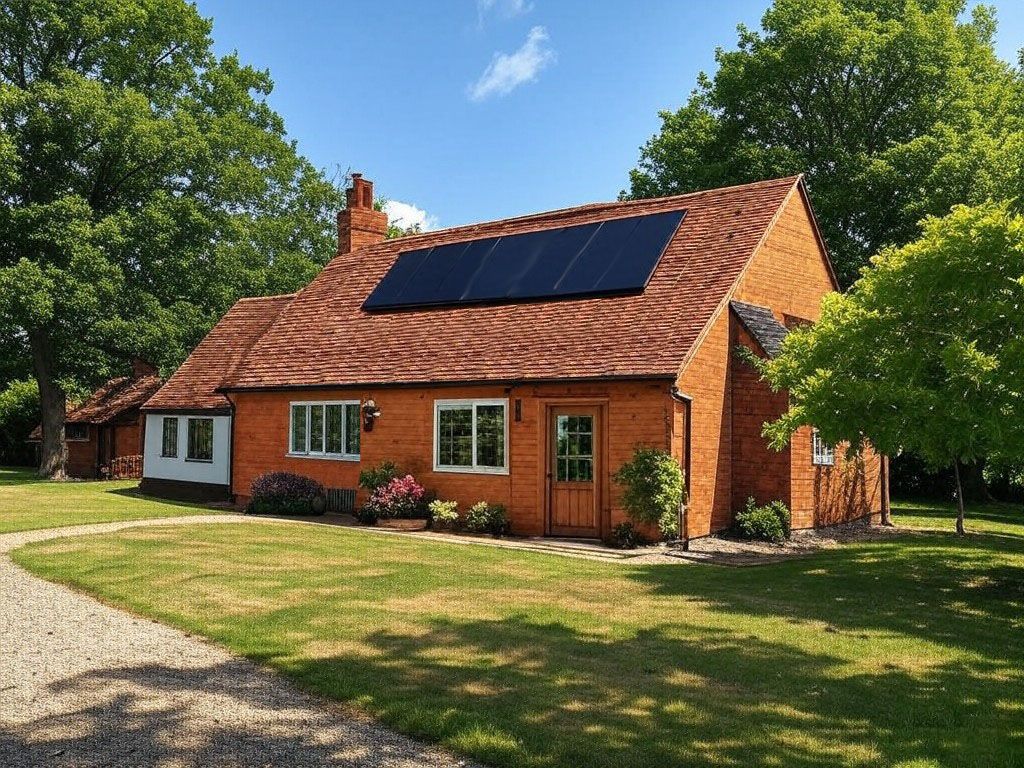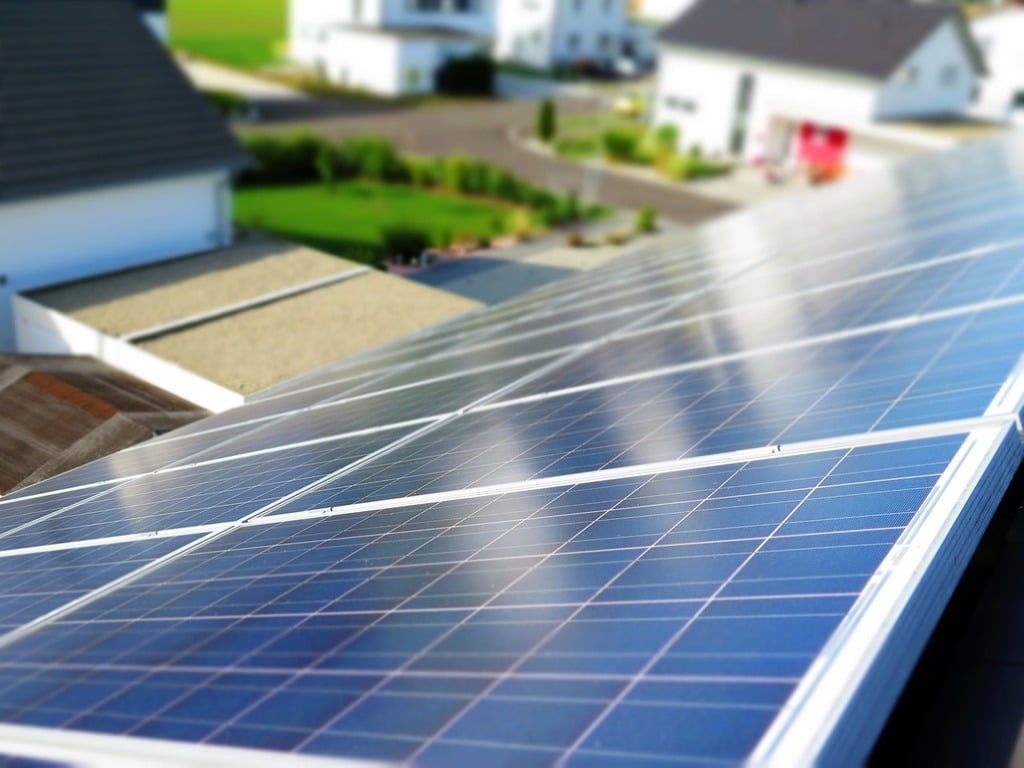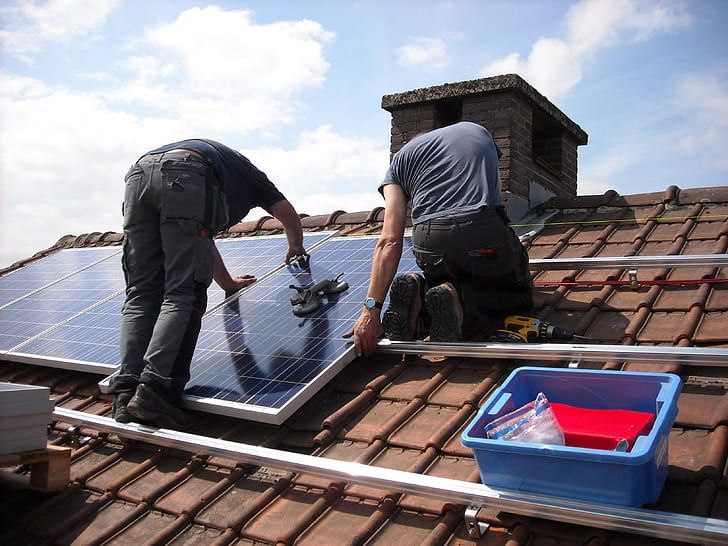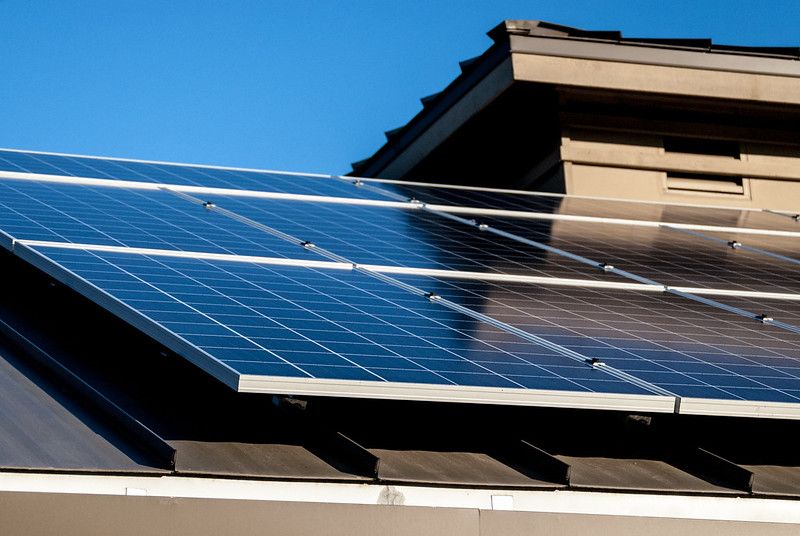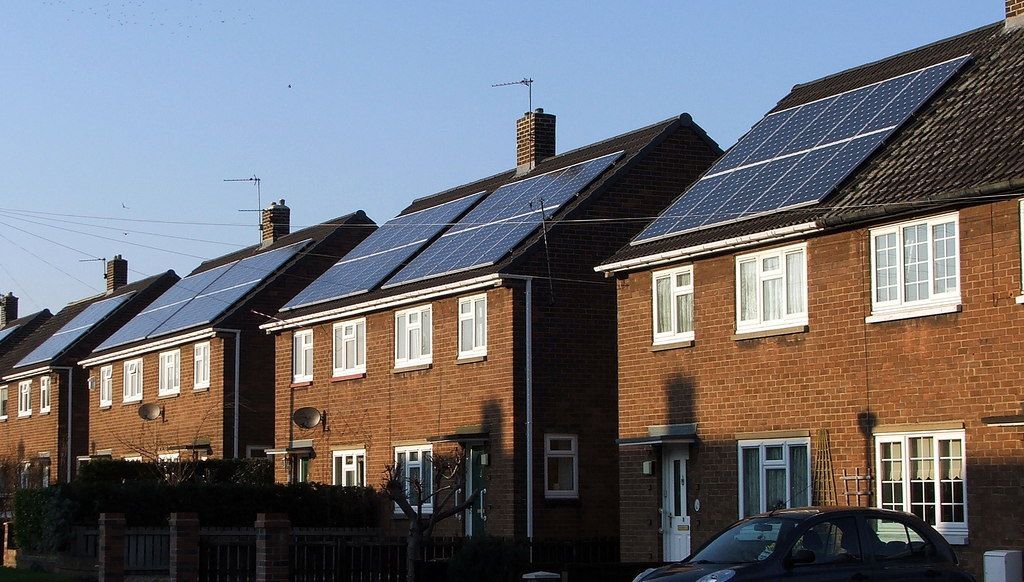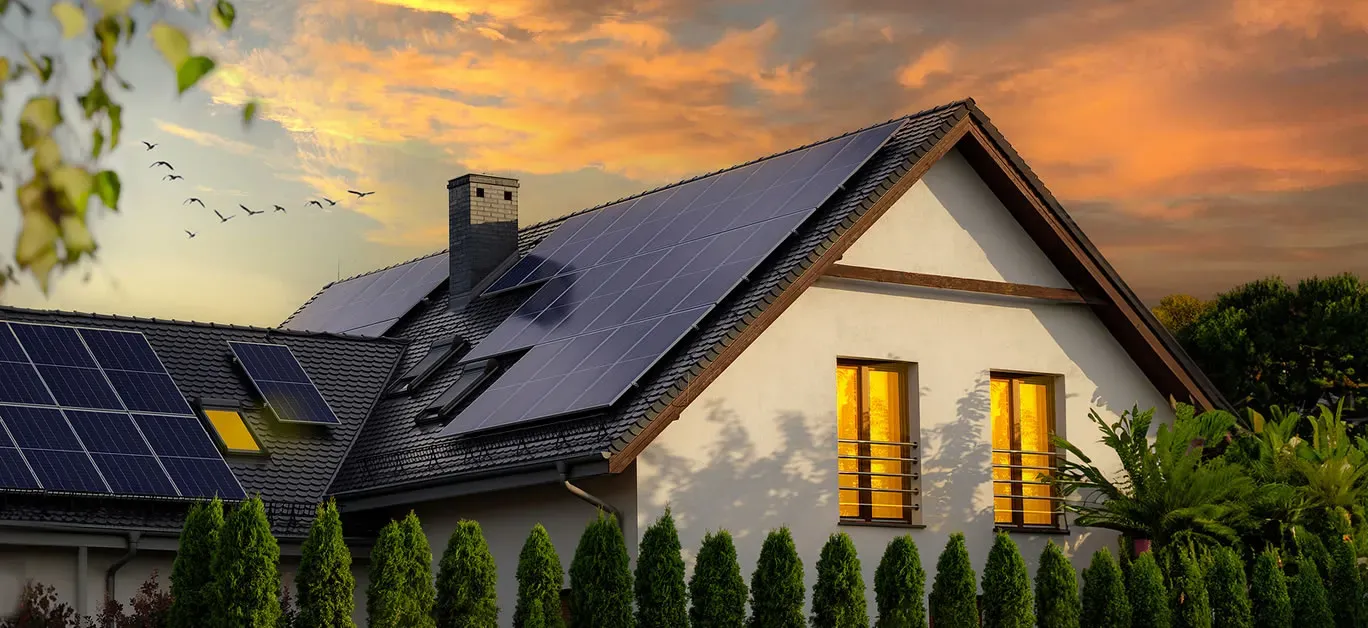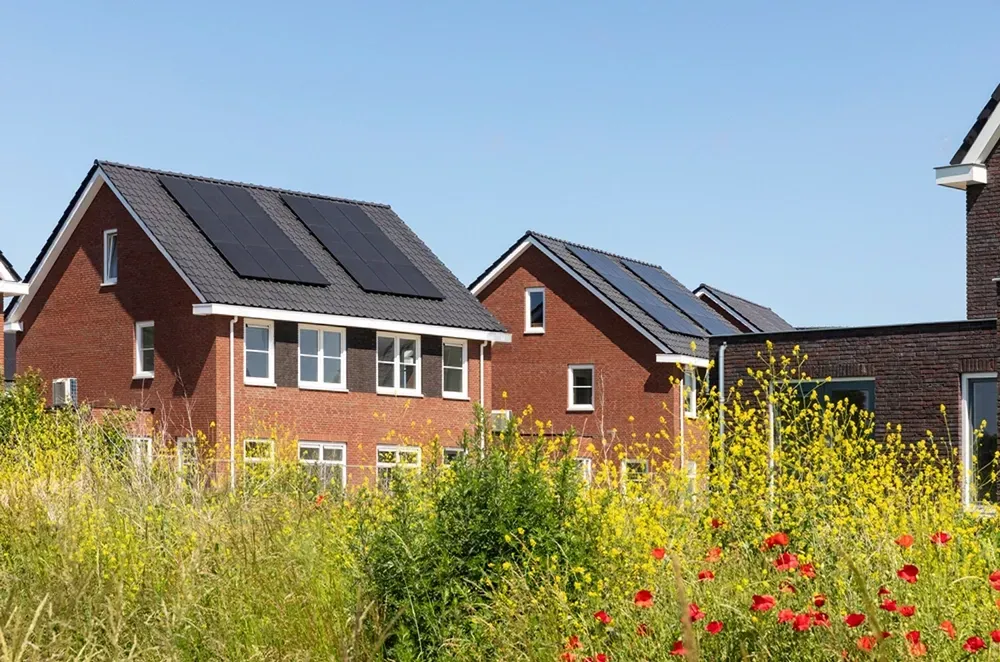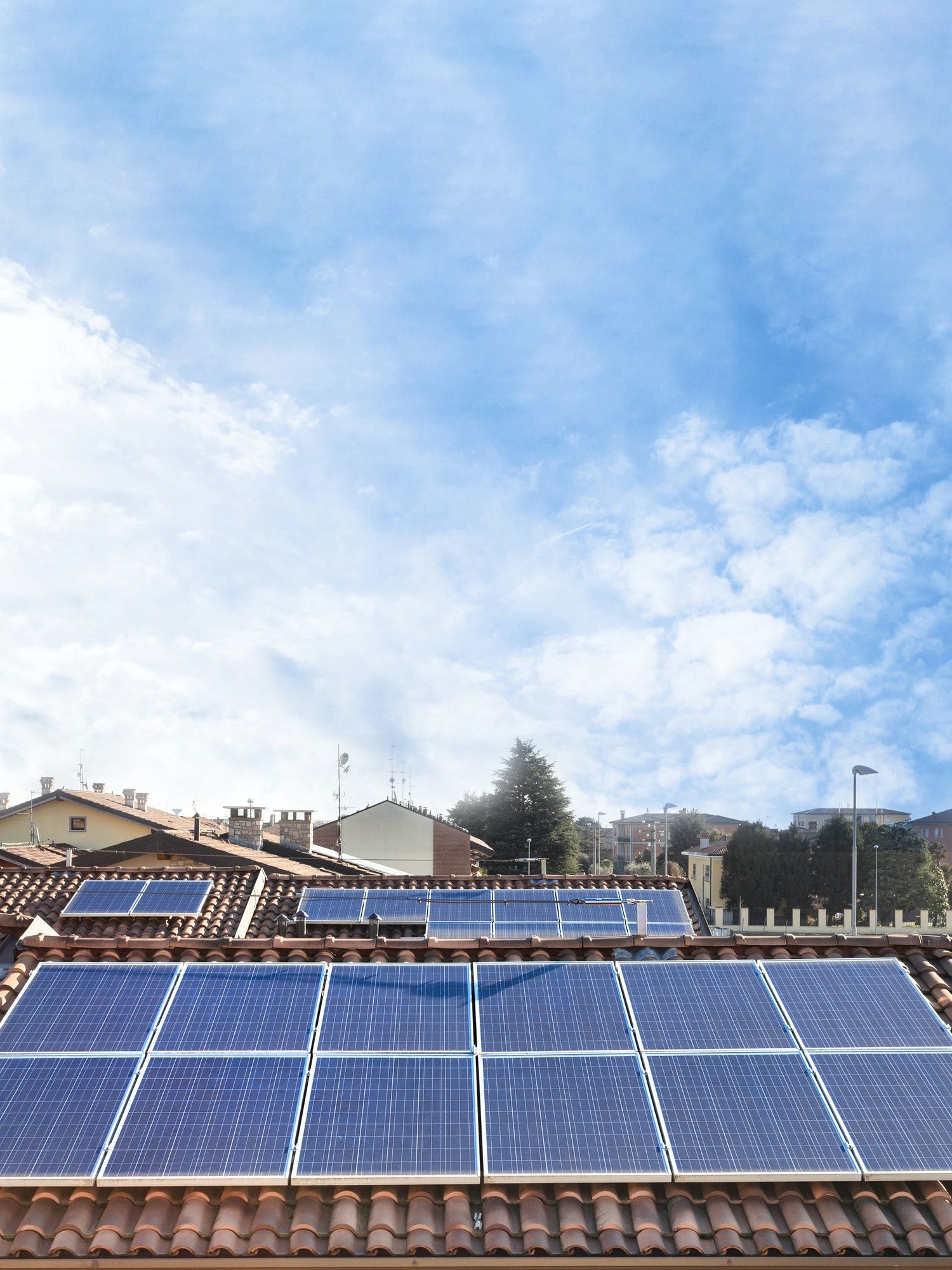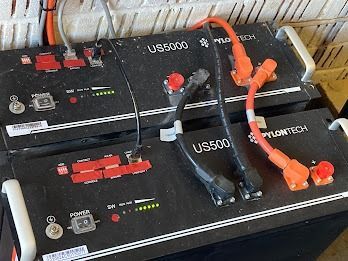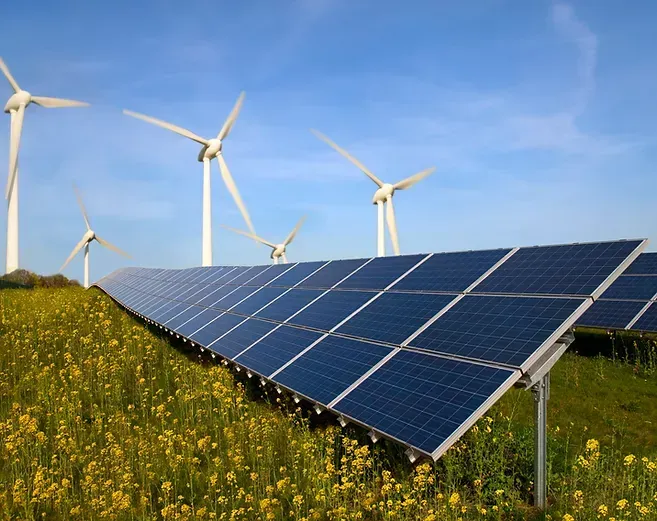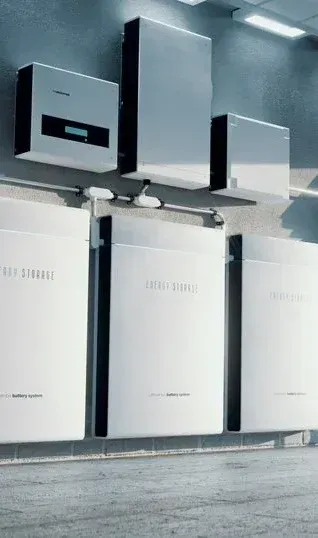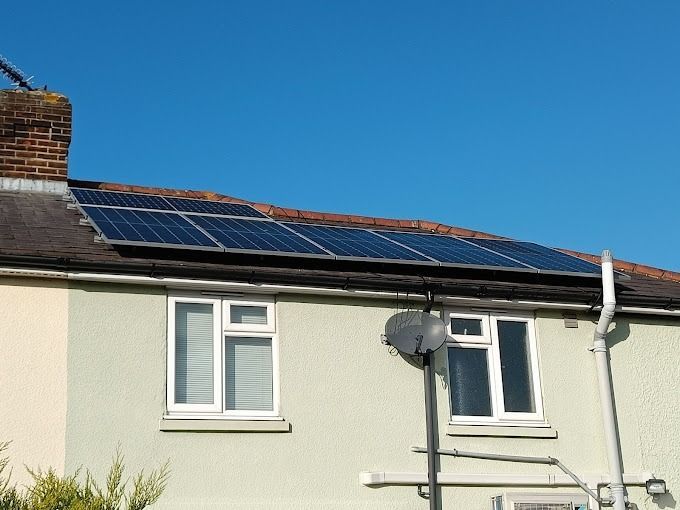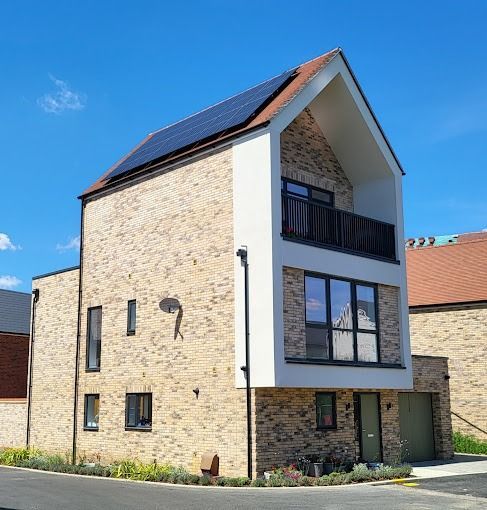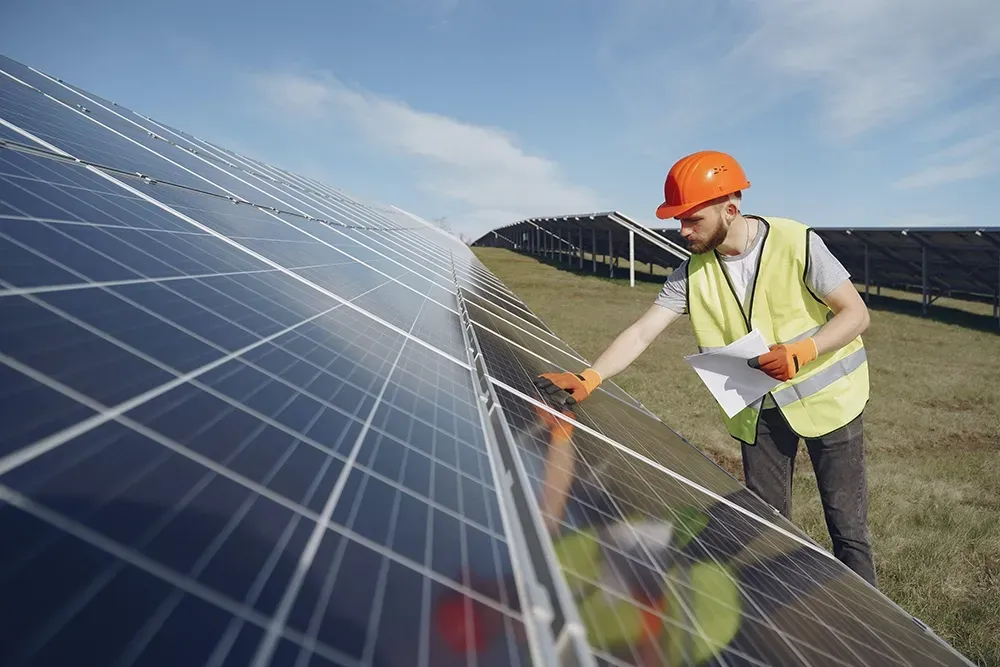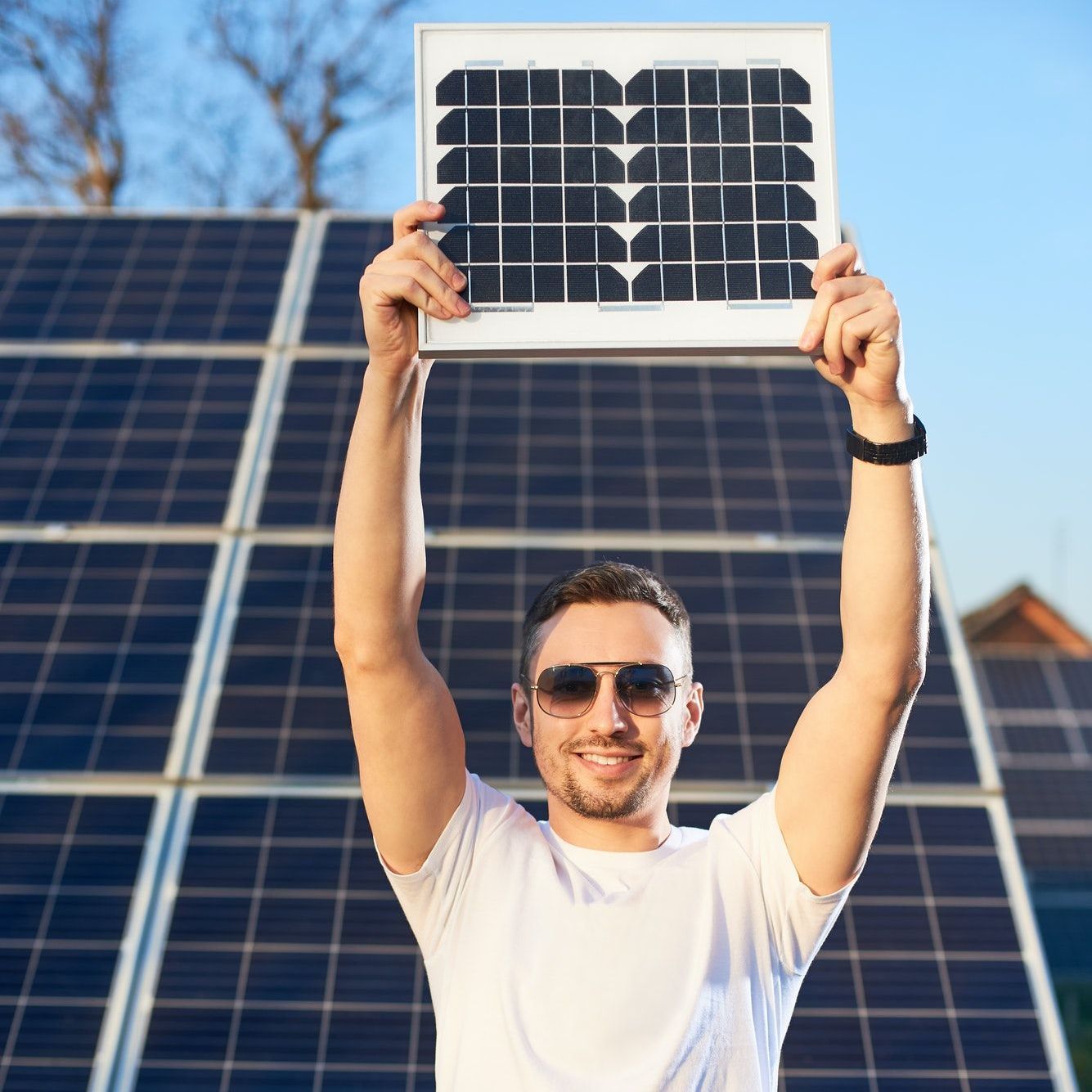How Many Solar Panels Do You Need for Your Home? A Complete Guide
Looking to Power Your Home with Solar Panels?
Transform your energy savings with high-quality solar panel installation! Enjoy lower bills, eco-friendly power, and reliable service tailored for your home. Start saving today!
As the world shifts toward renewable energy, many homeowners are considering solar power as a viable energy source. However, one of the most common questions that arise is, "How many solar panels do I need for my home?"
This comprehensive guide will help you understand the factors that determine how many solar panels you need, the impact of panel size, and how to calculate your energy consumption. By the end, you will have a thorough understanding of how to assess your home’s requirements for solar energy, enabling you to make informed decisions about the type of solar panel to install.
How Do I Determine How Many Solar Panels I Need for My Home?
What Factors Affect How Many Solar Panels You Need?
Determining how many solar panels you need for your home involves several key factors. The primary considerations include your energy consumption, the size of your home, the efficiency of the solar panels, and the amount of sunlight your location receives.
First and foremost, understanding your energy consumption is crucial, as it dictates the amount of solar power you need to generate. Additionally, the size of your home plays a significant role; larger homes typically require more energy, and consequently, more solar panels.
Other factors that can affect how many solar panels you need include the orientation and angle of your roof, which can influence the efficiency of the solar panel system. If your roof space is limited, you may need to install more efficient solar panels that can generate more power per square foot.
Furthermore, the climate and weather conditions in your area can also impact solar panel performance, as regions with more sunlight might require fewer panels to meet energy needs compared to areas with less sun exposure.
How to Calculate the Number of Solar Panels Required?
Calculating the number of solar panels required for your home involves a simple formula. First, you need to determine your average energy consumption in kilowatt-hours (kWh) per month.
Next, you would divide this number by the average production of a single solar panel in kWh per month, which is typically based on the panel's wattage and the average sunlight hours your area receives.
For example, if your home consumes 900 kWh per month and you are using 350W solar panels that generate about 30 kWh per month, you would calculate the number of solar panels needed by dividing 900 by 30 to determine how many solar panels work for your needs. This results in 30 solar panels needed to cover your home's energy consumption.
What Is the Average Number of Solar Panels for a Typical Home?
The average number of solar panels needed for a typical home varies widely, but it generally ranges from 20 to 35 panels. This number can change significantly based on the factors discussed above, including the size of your home and your energy consumption.
For example, a smaller home with lower energy needs may only require about 12 to 18 panels, while a larger home could require 30 or more. Understanding these averages can help you gauge the potential costs and benefits of installing solar panels for your home.
What Is the Typical Solar Panel Size and Its Impact on Your Home Needs?
How Do Sizes of Solar Panels Affect Power Generation?
The size of solar panels has a direct impact on power generation. Most residential solar panels come in standard sizes, typically around 65 inches by 39 inches, and they generally produce between 250W to 400W of power.
The size and efficiency of the solar panels you choose will affect the total number of panels you need to generate the desired amount of solar energy for your home. Larger and more efficient solar PV panels can produce more energy, thus potentially reducing the amount of solar panels needed for your solar array.
What Are the Common Sizes of Solar Panels Available?
Common sizes of solar panels available on the market include the 350W panel, the 370W panel, and the 400W panel, each varying in efficiency and dimensions. Higher wattage panels like the 400W option can generate more energy and may require fewer panels to meet your energy needs. As homeowners consider their options for residential solar panels, it’s essential to evaluate how the size of the solar panels will impact the overall system and the number of panels you will need to install to achieve your energy goals.
How Do Different Panel Sizes Influence the Number of Panels Needed?
The different sizes of solar panels can significantly influence the total number of panels needed for your solar system. For instance, if you opt for a 350W type of solar panel, you may need more panels compared to using 400W panels to generate the same amount of energy.
This means that understanding the wattage of the solar panels you choose will help you calculate how many solar panels are needed based on your house needs for energy consumption. If you have limited roof space, selecting a higher wattage panel can be beneficial, as it allows you to generate more power with fewer panels.
How Can I Calculate How Many Solar Panels Are Needed for My Energy Consumption?
What is the Formula to Calculate the Number of Solar Panels?
To calculate the number of solar panels needed for your energy consumption, you can use the formula: (Total monthly energy needs in kWh) / (Monthly energy production of one solar panel in kWh).
This straightforward calculation allows homeowners to quantify the exact number of solar panels required to effectively meet their energy needs. For example, if your home needs 800 kWh per month and each panel produces 30 kWh, you would divide 800 by 30, resulting in approximately 27 panels needed for your solar pv system.
How to Estimate Your Home's Energy Needs?
Estimating your home's energy needs typically involves reviewing your electricity bill to find your average monthly consumption in kWh. Another way to estimate energy needs is to consider the appliances and systems in your house, such as heating, cooling, and lighting.
By calculating the wattage used by these devices and how many hours they run daily, you can arrive at a more accurate figure for your energy consumption and understand how much solar power you might need. This estimation serves as a crucial starting point for determining how many solar panels you need to generate the necessary solar energy.
How Can I Use My Electricity Bill to Determine Solar Panel Needs?
Your electricity bill is an invaluable resource for determining how many solar panels are needed. By analysing the bill, you can identify your average monthly kWh usage, which provides a clear picture of your household energy consumption. This figure can then be used in the calculations discussed earlier to estimate the number of solar panels required to meet your energy needs.
Homeowners should also consider any anticipated changes in energy consumption, such as adding new appliances or electric vehicles, which may impact the total number of panels needed.
What Is the Relationship Between Roof Space and the Number of Solar Panels You Can Install?
How Much Roof Space Do You Need for Solar Panels?
The amount of roof space you need for solar panels is a significant factor in determining how many solar panels you can install. On average, each solar panel requires about 15 to 20 square feet of space. Therefore, for a typical installation of 20 to 35 solar panels, homeowners should ensure they have at least 300 to 700 square feet of usable roof space. Additionally, the layout of your roof will influence how many panels you can fit, as obstructions like chimneys, vents, or skylights can limit your options.
What Are the Considerations for Roof Orientation and Angle?
Roof orientation and angle are critical considerations when installing solar panels, as they directly affect how many solar panels work efficiently for energy generation. Ideally, solar panels should be installed on a south-facing roof with an angle between 30 and 45 degrees to maximise sunlight exposure. If your roof does not have the ideal orientation, you may need to consider additional panels to compensate for decreased efficiency, or you may need to explore ground-mounted solar options if roof space is insufficient.
How to Optimise Roof Space for Maximum Solar Power?
To optimise roof space for maximum solar power, homeowners should consider factors such as panel placement, shading, and the type of solar system. Ensuring that panels are positioned to receive the most sunlight throughout the day is essential. Additionally, minimising shading from trees or other structures can significantly enhance solar panel performance. In some cases, it may be beneficial to use solar batteries to store excess energy generated during peak sunlight hours, allowing homeowners to maximise the efficiency of their solar system.
How Many Solar Panels Would You Need to Power a Specific Size of Home?
What Is the Average Number of Solar PV Panels Needed for Different Home Sizes?
The average number of solar panels needed can differ based on the size of your home. A small home may require about 10 to 15 panels, while a medium-sized home typically needs around 20 to 30 panels. Larger homes, on the other hand, could require upwards of 16 panels to meet their energy demands. Understanding these averages can help you plan your solar installation effectively, ensuring that you have enough solar panels to adequately power your home.
How Do Energy Efficiency Measures Affect the Number of Panels?
Implementing energy efficiency measures can significantly affect the amount of solar panels you need for your home. By reducing your overall energy consumption through energy-efficient appliances, improved insulation, and smart home technology, you can lower your monthly energy needs. Consequently, this reduction can result in needing fewer solar panels to generate the necessary solar energy for your home. Prioritising energy efficiency before installing solar panels is a smart approach to maximise your investment in a solar system.
What Are the Specific Calculations for 10 Panels or More?
When considering a solar installation of 10 panels or more, specific calculations become crucial. For instance, if you decide on a 4kW solar panel system with 350W panels, you would need approximately 12 panels to achieve that capacity. Calculating the total energy production, factoring in efficiency losses, and considering your energy needs will provide a clearer picture of how those 10 panels or more can effectively contribute to your household energy consumption. Additionally, it’s essential to evaluate potential incentives and rebates available for installing solar panels, as these can offset initial costs and encourage solar adoption.
Solar Simplicity
Clean, Green Energy Solutions!
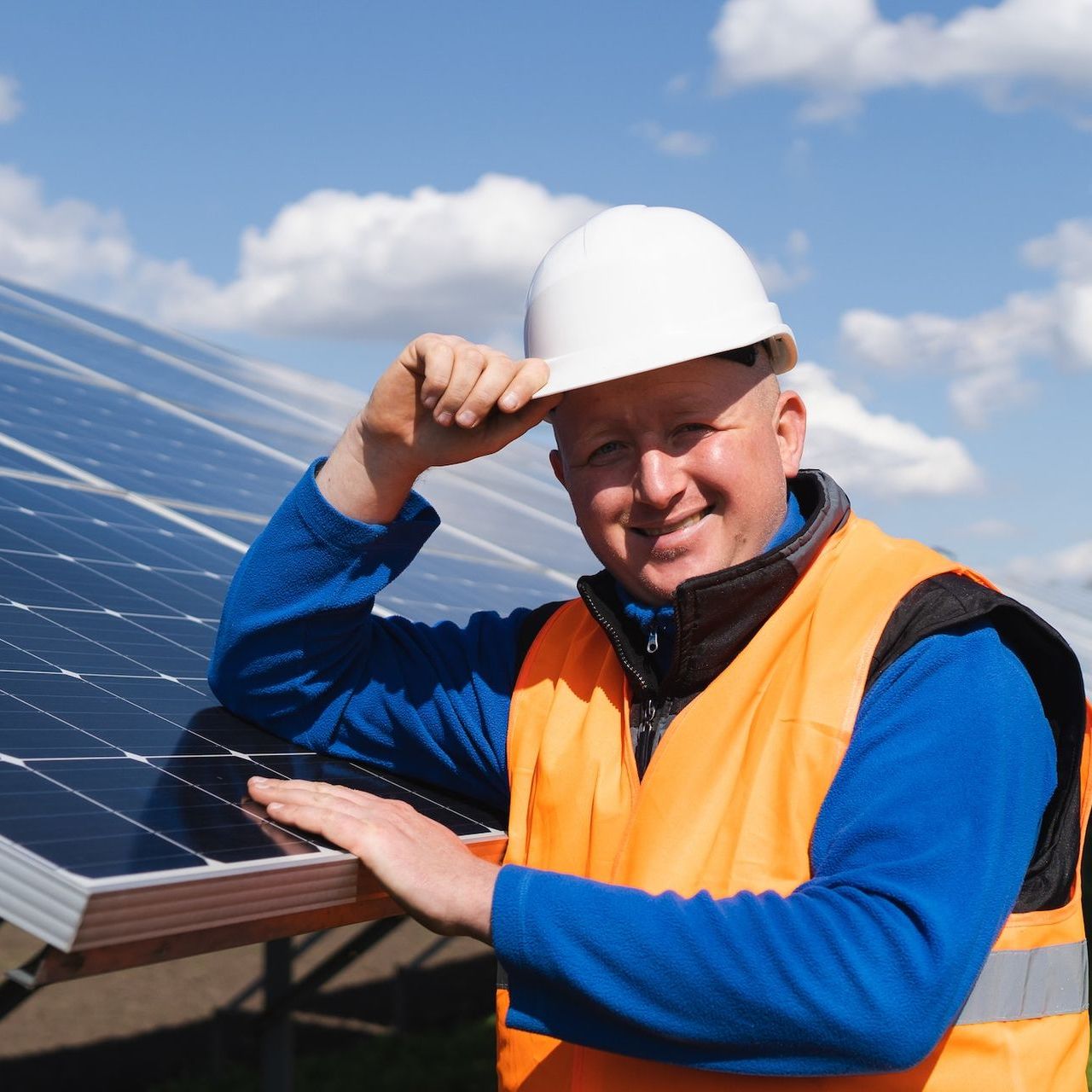
Professional solar panel installers in the UK, offering high-quality, affordable installations.
Save up to 90% on your electricity bills!
